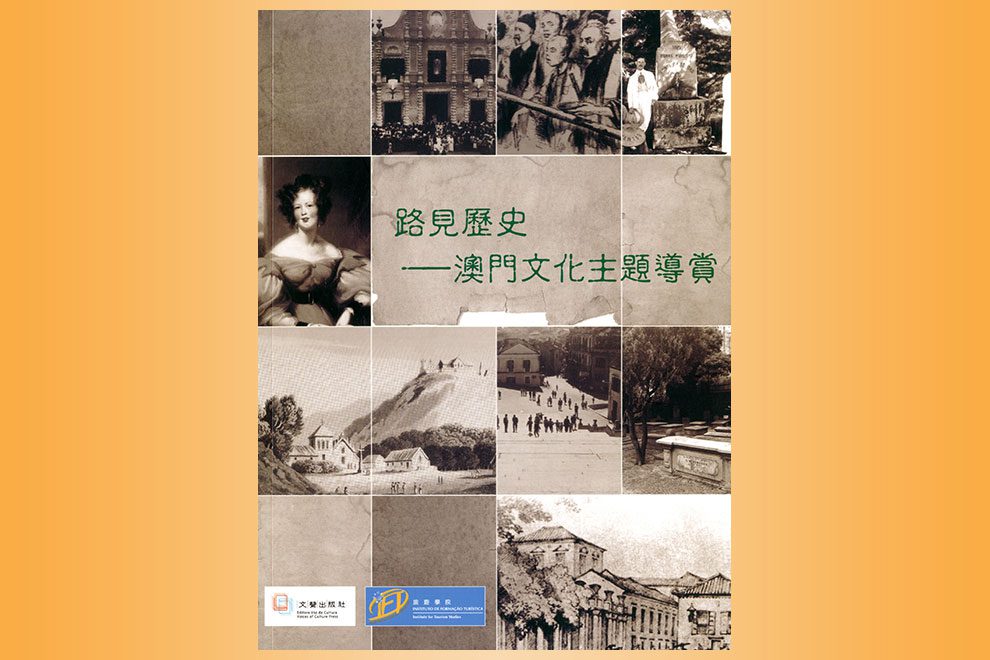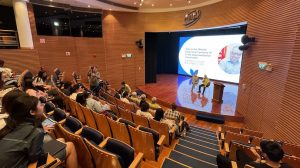A recently-released book offers Macao residents and visitors a fresh perspective on the city’s history and culture, reviewing parts of its past unknown to many.
The book, launched by IFT in December 2017, features 8 research articles produced by students from the Institute’s Macao Heritage Tour Guide Course. Each article presents a tour route with a specific theme. The themes cover various historical periods, allowing readers to learn more about old Macao.
The book, titled “路見歷史──澳門文化主題導賞” (“The History Interpretation of the History and Culture of Macao” in English), is available only in Chinese. It offers historical and cultural interpretation on Macao of old, highlighting the cultural significance of each selected thematic route. The publication was recently featured in a programme by local TV broadcaster TDM.
IFT Assistant Professor Dr. Cora Wong is part of the teaching team delivering the Macao Heritage Tour Guide Course. In an interview with TDM focused on the book, she said the publication was good reference material for students as well as tourists interested in knowing more about the history of Macao.
“For all these reasons, this is a book it is worthwhile to buy or borrow from the library,” Dr. Wong said.
The Macao Heritage Tour Guide Course is a professional programme delivered by IFT’s Tourism and Hotel School. The course was launched in 2005, the same year the Historic Centre of Macao was inscribed onto the UNESCO World Heritage List.
Students on the Macao Heritage Tour Guide Course are required to produce pieces of historical research as part of the course graduation requirements. Eight such student-produced research articles were selected to be included in the book. The selection was based on each article’s research quality and novelty.
Ms. Leong In Kuan, Mr. Sou Kai Heng and Ms. Tai Oi Tai contributed a chapter concerning the so-called ‘coolie trade’ system in the 19th century, often considered a dark period in Macao’s history, involving human trafficking of indentured labourers. The students were also interviewed by TDM. They stated that the research work allowed them to learn more about the coolie trade system, an unconventional topic and mostly excluded from guide interpretations about the Historic Centre of Macao.
“There are still so many interesting, deep-rooted historical stories in Macao worthy of exploration,” Mr. Sou told TDM.
Ms. Tai explained that the group’s research enabled them to find out the places once used for trading of coolie labourers. She hoped their work could help shed light on the 19th-century coolie trade, and also contribute to increase public awareness on human trafficking, a problem still impacting some regions around the world in the 21st century.
Ms. Tai said the new book could help promote cultural tourism in Macao and contribute to the diversification of the city’s tourism offering, by helping visitors to explore different areas of Macao. This, she added, was also a way to support sustainable tourism development in Macao.









